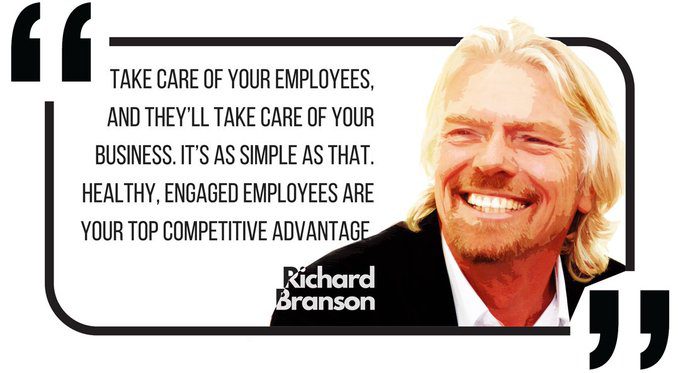Sir Richard Branson is famously quoted for saying: “Clients do not come first. Employees come first. If you take care of your employees, they will take care of the clients.” I am certainly not going to argue with that.
Yet, when it comes to systemisation, there is a common misconception that implementing systems is somehow going against the interests of people working in the business. So as an enthusiastic supporter of business systems, let me clear up that myth once and for all and clarify the important role that people play in any systemisation effort.
Systems without the participation of people are dead and will not work.
Good systems implemented in a business represent best practices in running the various processes. However, systems don’t exist in a vacuum and need to be adapted to changing conditions and be improved over time. This is only possible by the participation of the people working the systems. They have to take ownership of the systems and the very idea of systems thinking in the business.
Systems will free people from redundant work, avoid reinventing the wheel, and give people room to grow
Systems are the basis for either stop doing things that result in problems, delegating or outsourcing inefficient work, or automating boring, repetitive tasks. By doing that, they create space for creative and productive work and provide unique opportunities for growth – both for the business as well as for the people working there.
Systems are proven to increase job satisfaction as by definition they are producing predictable results that are aligned with the business objectives but also very transparent to the people doing the work.
I have seen this again and again – people being asked to produce a result, without being given the instructions of how to best do it. Too often it is assumed that they figure it out somehow or that they should know anyway. Motivated new recruits drown at the deep end of the pool and entrenched “oldtimers” stick to routines of yesteryear outgrown by the fast-paced development of the business – to the frustration of the business and not least the employees. Contrast that with clear processes build on a well-defined skill set and creating room to align individual aspirations with business needs.
Here is what actions you can take to generate value from this insight
- Involve people early in all stages of systems creation, execution and optimisation. Let people own the systems – capturing their best experiences and letting them participate in the positive outcomes. Establish “systems thinking” in everybody’s mind and make it part of your HR processes.
- Don’t just systemise for the sake of it. Go the next step and introduce delegation, outsource where it makes sense, and automate boring repetitive tasks. Nobody likes copy-pasting all day, yet studies show that a large proportion of the workforce is still condemned to do this kind of work – with low levels of job satisfaction as a result.
- Shift from a skills-centered to a traits-centered work ethic. Skills are important and sometimes hard and longwinded to acquire. They are teachable nevertheless. Traits on the other hand are inherent to the individual and are a powerful motivator when matched to the job requirements.

